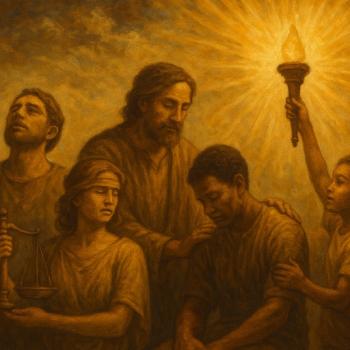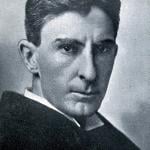What to Do With the Good Things in My Life
Genesis 48:1-22
I want you to close your eyes. Now that you have your eyes closed, I want you to think about all the good things in your life. Reflect for a minute on all the good things – people, events, changes, ideas, that made your life great. What are you going to do with these good things that you have in life? To answer that question, we need to look at seven important truths about the good things in my life.
SEVEN IMPORTANT TRUTHS ABOUT THE GOOD THINGS IN MY LIFE
1. Every good thing in my life comes from God (Genesis 48:1-4)
“He said to me, ‘I will make you fruitful and numerous; I will make many nations come from you, and I will give this land as a permanent possession to your future descendants.’” (Genesis 48:4, CSB)
Jacob, also known, as Israel, gave God all the credit for the good things in his life. Because Jacob knows that everything good in his life comes from God.
The cereal that we eat with milk comes from the grain, which came from the mill, which goes back to the provision of God in the wheat fields. The milk came from the cows that ate the grass that came from the ground that God provided. Everything you have is traced back to God.1
2. Every good thing you give away, you get back (Genesis 48:5-6)
“Your two sons born to you in the land of Egypt before I came to you in Egypt are now mine. Ephraim and Manasseh belong to me just as Reuben and Simeon do. Children born to you after them will be yours and will be recorded under the names of their brothers with regard to their inheritance.” (Genesis 48:5–6, CSB)
You see, Jacob lost Joseph. Now, Jacob realizes that he received Joseph back. God gave Joseph back to Jacob. But Jacob received more than just his son. He was given grandchildren. Grandchildren he never thought he would ever have. God teaches a very important lesson here: every good thing you give away, you get back.
I know what you are thinking: Jacob didn’t give Joseph away. Joseph was taken. It is true that Jacob’s son sold Joseph and that a band of people took Joseph away. Many people think that when I pass on good things, that they should just be for my children. But Jacob has learned and he tells his son Joseph that good things will be given to Joseph’s children as well.
You may have wondered as I did why Ephraim and Manasseh were considered two tribes of Israel. How could that be true? They become two tribes right here. The reason is that Jacob officially adopted them into his family.
Jacob officially adopts the two sons of Joseph. His grandsons were not born in Israel. Instead, they were born in Egypt. Here, Jacob replaces the birthright of Reuben and Simeon and gives them to Ephraim and Manasseh.
“These were the sons of Reuben the firstborn of Israel. He was the firstborn, but his birthright was given to the sons of Joseph son of Israel because Reuben defiled his father’s bed. He is not listed in the genealogy according to birthright. Although Judah became strong among his brothers and a ruler came from him, the birthright was given to Joseph.” (1 Chronicles 5:1–2, CSB)
At this point, Jacob does something amazing: He claims Joseph’s sons as his own—elevating Ephraim and Manasseh to the status of patriarchs. “Wow,” Joseph would have thought. “What a blessing. You take my two boys who were born in Egypt and are dressed like Egyptians—and you’re bringing them into your family, where they will have a legacy, where their names will be recorded for all eternity, where they will be key players in God’s economy. Wow!”
The addition of Ephraim and Manasseh brought the total number of tribes to fourteen. But Ephraim and Manasseh usually take the place of two other tribes in the accounting, one of which is the tribe of Joseph. Although the tribe of Joseph appears in the Book of Revelation, throughout the Bible his two sons usually assume his place. The other tribe taken out of the enumeration is the tribe of Levi because, as priests, the Levites would have a high and holy calling, but not a piece of property.2
3. God may be good to me, but that doesn’t mean it will be easy (Genesis 48:7)
“When I was returning from Paddan, to my sorrow Rachel died along the way, some distance from Ephrath in the land of Canaan. I buried her there along the way to Ephrath” (that is, Bethlehem).” (Genesis 48:7, CSB)
Jacob brings this is up to show that Rachel died too soon. There were no more sons by her. Three tribes come from her two sons though: The Tribe of Ephraim, the Tribe of Manasseh, and the Tribe Benjamin. Sometimes, things don’t go as we wish they would. We go through detours in our lives. That doesn’t mean that God withholds the good things in my life. God’s delays are not God’s denials.
4. God wants me to pass on good things to others (Genesis 48:8-12)
“By faith Jacob, when he was dying, blessed each of the sons of Joseph, and he worshiped, leaning on the top of his staff.” (Hebrews 11:21, CSB)
The writer of Hebrews says that Jacob passed on these good things to his grandchildren by FAITH. Jacob had all the reasons in the world not to bless them. They grew up without him in their lives. They were Egyptians. Their mother was Rachel, the family member who died too soon. So every time he saw Ephraim and Manasseh, it brings up the memory of Rachel.
Some think Jacob cannot make out his grandchildren because of his poor eyesight, but the question “Who are these?” is probably related to legal ritual: Wedding “Who gives this woman to this man?” Joseph credits God for his sons and Jacob praises God for their reconciliation.
“When Israel saw Joseph’s sons, he said, “Who are these?” And Joseph said to his father, “They are my sons God has given me here.” So Israel said, “Bring them to me and I will bless them.”” (Genesis 48:8–9, CSB)
This is an adoption ceremony. Jacob adopts Joseph’s sons right here.
These are what occupied Jacob’s thoughts as he was lying on his deathbed. He was reflecting on the promises of God, anticipating the blessing of God upon these boys, and remembering the loss of his spouse. Apparently, these expressions are rare nowadays.
Listen to the five most common deathbed confessions according to one nurse’s experience3:
- I wish I’d had the courage to live a life true to myself, not the life others expected of me.
- I wish I didn’t work so hard.
- I wish I’d had the courage to express my feelings.
- I wish I had stayed in touch with my friends.
- I wish that I had let myself be happier.
These could not be more different than the words of Jacob.
5. It is important that I accept the way God shares His good things (Genesis 48:13-16)
“Then Joseph took them both—with his right hand Ephraim toward Israel’s left, and with his left hand Manasseh toward Israel’s right—and brought them to Israel. But Israel stretched out his right hand and put it on the head of Ephraim, the younger, and crossing his hands, put his left on Manasseh’s head, although Manasseh was the firstborn. Then he blessed Joseph and said: The God before whom my fathers Abraham and Isaac walked, the God who has been my shepherd all my life to this day, the angel who has redeemed me from all harm— may he bless these boys. And may they be called by my name and the names of my fathers Abraham and Isaac, and may they grow to be numerous within the land.” (Genesis 48:13–16, CSB)
Jacob blesses Joseph. When he does, he is invoking the name of his family: Abraham, Isaac, and Jacob. Jacob is extending this legacy from the past to the future. He is reassuring Joseph that God will still do good in his life. But how did Jacob know this? He had to learn it. He says that there:
“God has been my shepherd and the Angel has redeemed me from harm”
Jacob learned how God’s goodness operates. The “Godness” of goodness or God’s purpose in His goodness is important for me to know. You can’t be good without God. We can’t see the goodness in my life without God. I have to accept the WAY that God wants to share His goodness. It is important that I accept HOW God shares His good things with others.
Ephraim became the greater tribe by far. The ten northern tribes of Israel are called Israel—but they’re also referred to as Ephraim because Ephraim was the predominant of the ten northern tribes.
Culturally and traditionally, the elder son, the firstborn was to receive all of the benefits and assume the greater position. But the Lord seems to tweak that a lot…
• Cain was the firstborn, but Abel was blessed.
• Ishmael was the firstborn, but it was Isaac who was blessed.
• Esau was the firstborn, but it was Jacob who was blessed.
• Reuben was the firstborn, but it was Joseph who was blessed.
• Aaron was the firstborn, but it was Moses who was blessed.
Throughout the Word, the Lord often makes the lesser the greater, and uses the younger to rule the older. Why? I think the basic message is simply this: What is coming is always better than what has been.4
6. Every good thing God gives me tells a story (Genesis 48:17-20)
“When Joseph saw that his father had placed his right hand on Ephraim’s head, he thought it was a mistake and took his father’s hand to move it from Ephraim’s head to Manasseh’s. Joseph said to his father, “Not that way, my father! This one is the firstborn. Put your right hand on his head.” But his father refused and said, “I know, my son, I know! He too will become a tribe, and he too will be great; nevertheless, his younger brother will be greater than he, and his offspring will become a populous nation.” So he blessed them that day, putting Ephraim before Manasseh when he said, “The nation Israel will invoke blessings by you, saying, ‘May God make you like Ephraim and Manasseh.’ ”” (Genesis 48:17–20, CSB)
The story this blessing tells us that God can do unexpected things in your life. God uses this inverted blessing (the smaller will be greater than the larger). He uses this specific blessing and says that it will be an example for other blessings. Other people will use this story to share good things with people who never expected them. Because Ephraim never expected to be placed above Manasseh. Just as Ephraim never expected that blessing, Ephraim will tell that story to others.
God tells the people of Israel to use this inverted blessing as an example to do good for others, those who never expected it.
7. God’s goodness doesn’t end today. It extends into the future (Genesis 48:21-22)
“Israel said to Joseph, “Look, I am about to die, but God will be with you and will bring you back to the land of your fathers. Over and above what I am giving your brothers, I am giving you the one mountain slope that I took from the Amorites with my sword and bow.”” (Genesis 48:21–22, CSB)
The point is, Jacob, pictured a great future in the Lord for his children and grandchildren, a future that involved the fulfillment of God’s promises. As God’s people in our day, we need to picture for our children the great purpose of completing the task of world evangelization before the Lord’s coming. We do not truly bless our children if we encourage them to worldly success instead of success with God. By our example, through stories we read to them, through the values we live and teach, we need to give our children a vision for the coming kingdom that God has promised for those who love Him.5
This section begins with a prophecy. Jacob tells Joseph that this story won’t end in Egypt. Even though the situation looks like it ends here, it won’t. There will come a time when God will bring His people back to the land that He promised his ancestors. Jacob gave Joseph a coat at the beginning of his life. Here, Jacob gives Joseph another gift. The gifts we give at the end of our lives are more than the gifts we give at the beginning. What are you going to do with the good things God has given to you? Receive it. Accept it. Extend it.
1 Tony Evans, Tony Evans’ Book of Illustrations: Stories, Quotes, and Anecdotes from More than 30 Years of Preaching and Public Speaking (Chicago, IL: Moody Publishers, 2009), 27.
2 Jon Courson, Jon Courson’s Application Commentary: Volume One: Genesis–Job (Nashville, TN: Thomas Nelson, 2005), 207–208.
3 Brad Mills, “Passing On Our Faith (Genesis 48),” Sermon, 13 May 2015, Internet, http://graceclovis.org/sermons/passing-on-our-faith-genesis-48/, accessed on 18 May 2018.
4 Jon Courson, Jon Courson’s Application Commentary: Volume One: Genesis–Job (Nashville, TN: Thomas Nelson, 2005), 208–209.
5 Steven J. Cole, “Lesson 79: A Godly Heritage (Genesis 48:1-22),” 3 September 2013, Internet, https://bible.org/seriespage/lesson-79-godly-heritage-genesis-481-22, accessed on 18 May 2018.
Photo by Carolyn V on Unsplash
Other Posts:
How Parents Can Encourage Their Families Through Life’s Challenges














